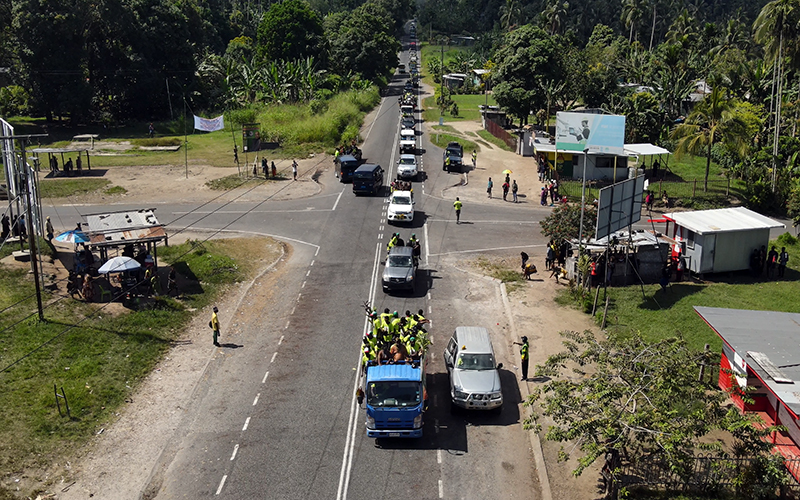Papua New Guinea is not ready to adopt the system of the people electing the prime minister, says University of PNG political science lecturer Patrick Kaiku.
He said the review of the form and system of government recently launched by Prime Minister James Marape could be “unconstitutional”.
The Government has directed the Constitutional Law Reform Commission to undertake a review and include the election of the prime minister by the people.
“We are in the dark with this new system because there are no discussion from an academic perspective or any information on this topic in the country,” he said.
He said the Pangu Party and Marape were leading the consultation.
“The Pangu Party did not sell to the people the idea that this voting system will create changes to the constitution to allow people to vote directly,” he said.
“We already have a problem where a political party is not getting the mandate of the people to instigate the policy that they serve the people during the election,” he said.
Kaiku said it had not been explained what was wrong with Parliament electing the prime minister.
“What is the issue here that we are trying to deal with when we want to reform? Was there any evidence to suggest that parliament voting for the prime minister is problematic? We will only make constitutional reform when there is a clear evidence to suggest that what we are doing is not working right,” he said.
Kaiku said PNG was guided by the Westminster system of government.
“Direct voting of the prime minister is a feature of the presidential system of government,” he said.
Meanwhile, the Special Parliamentary Committee has assured to put Jiwaka Province as one of the provinces under spotlight during the next 2027 National General Elections concerning illegal voting systems.
This was mentioned during the Highlands Region Special Parliamentary meeting chairman Allan Bird in Mt Hagen, Western Highlands Province last Friday, after the Jiwaka Election manageress Rosie Pandihau delivered the elections 2022 reports.
“Certain individuals in the community come to an agreement to split the ballot papers and mark them without any supervision from the Election officials on the ground, and also reporting that it was a trend for the three general elections in 2012, 2017 and 2022 is an interesting revelation.”
Pandihau said conducting elections in Jiwaka Province was challenging where voters always come with new approach and take her by surprise during polling.
She said at the polling area, people agreed and the ballot papers were shared among certain people to mark on behalf of the ward or voters.
SOURCE: THE NATIONAL/POST COURIER/PACNEWS














